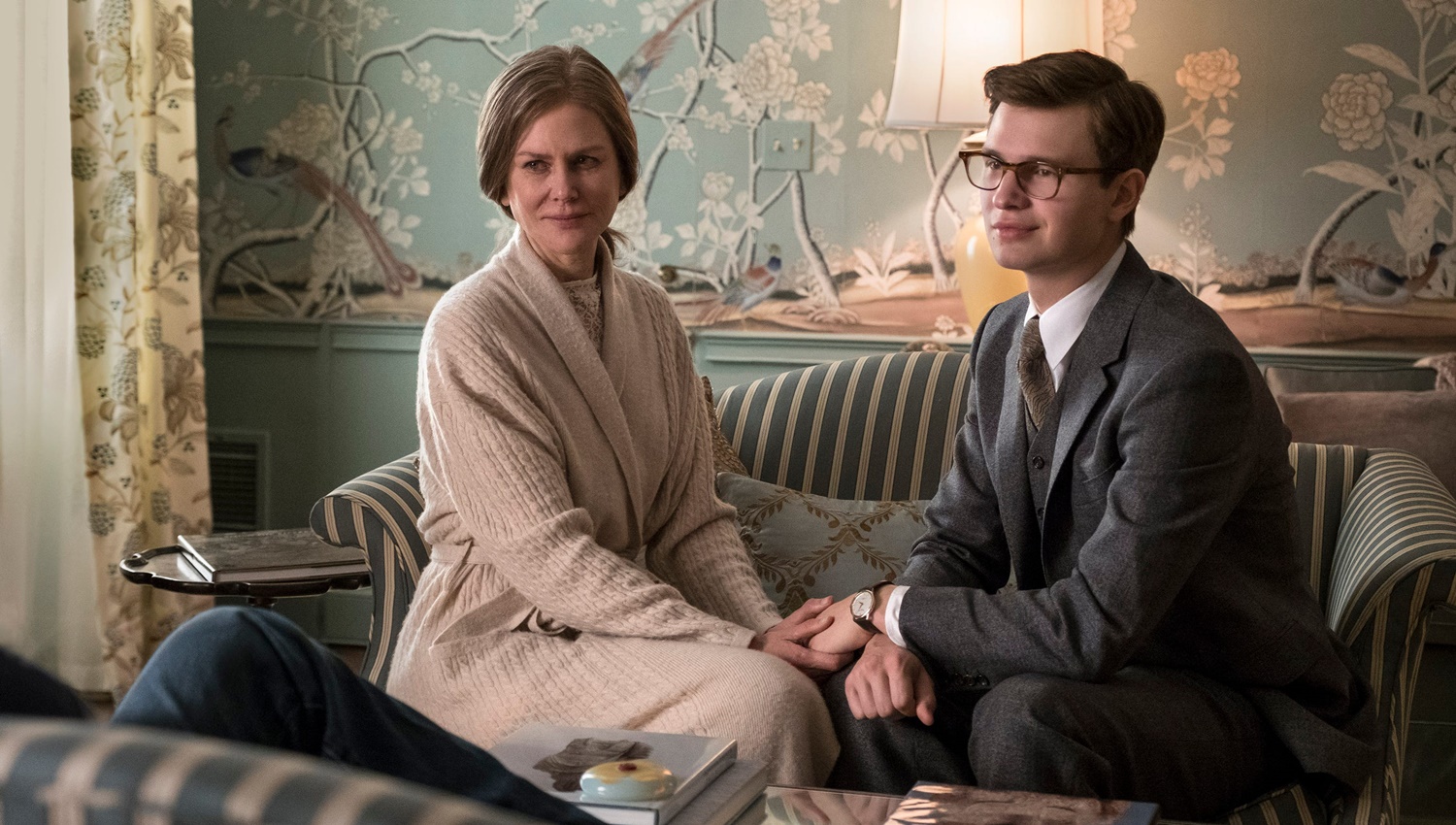
The Goldfinch
Dustin Chase
Screenings were packed for “The Goldfinch,” at the Toronto Film Festival, despite negative reviews. John Crowley (“Brooklyn“) seems to be the right director choice for this film. “Goldfinch” doesn’t have “Brooklyn‘s” magic though. With so much content and plot to cover even over two hours of running-time is not enough time. “The Goldfinch” suffers most from coincidences, depending on them to move the plot back and forward. Elgort fails to connect with the material, or perhaps he is miscast here, I’m not sure which. Kidman’s character, a wealthy housewife, is ironically the most mysterious, and more compelling than many of the other flatter characters.
Theo Decker’s (Oakes Fegley) and his mother are victims of a museum bombing. A tragedy that would frame the rest of his life. Abandoned by his father (Luke Wilson) at an even younger age, he requests to live with a schoolmate’s family, The Barbers. Shocked at what Theo is going through and why he would pick their family, Mrs. Barber (Kidman) nevertheless welcomes him openly. Theo begins to fit in with the family more than their own children, but just before they can legally adopt him, his father returns, whisking him away to Nevada. Theo has held onto a secret since his mother’s death, he blames himself, and took a priceless painting out of shock that he has kept hidden.
"...there are a variety of elements including violence, anger, and drug use, that are never given context before the plot jumps to the next scene."
Then first 30 minutes of the movie creates a mysterious aura that the remaining minutes never resolve satisfactorily. There are elements of “Extremely Loud and Incredibly Close,” as young Theo finds himself meeting some unique New York strangers. Jeffery Wright who is in both films is another one of the few standouts. Drug use is prevalent throughout this film. There is drug use among children and adults giving children drugs, and the film just shows that it occurs, without addressing why. In fact, there are a variety of elements including violence, anger, and drug use, that are never given context before the plot jumps to the next scene. The first half is about character development even though we never really get to know anyone, and the second half turns into more of a thriller, hunting for the missing painting.
The editing fails the movie more than performance or direction. With less connective tissue, he film’s latter moves at a faster pace. As if there is a race to wrap everything up in this unearned happy ending. The story’s fragments never come together to form a full picture. “The Goldfinch” is ultimately about loss and how that can shape our lives in ways we never realize. The reliance on coincidence belittles the drama and even the emotion we feel guilty for not expressing.
Final Thought
"The Goldfinch" relies too heavily on coincidence to tell its story instead of finding a way to adapt it more convincingly for the big screen.
